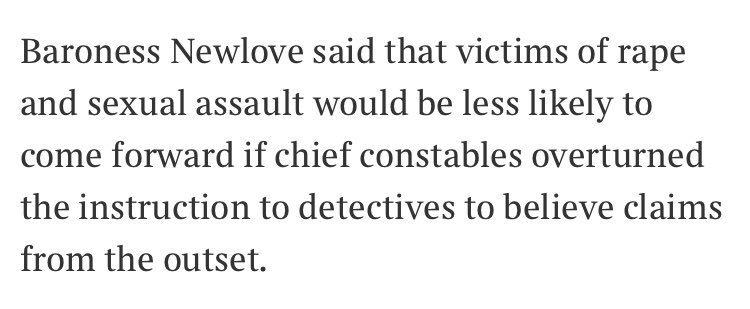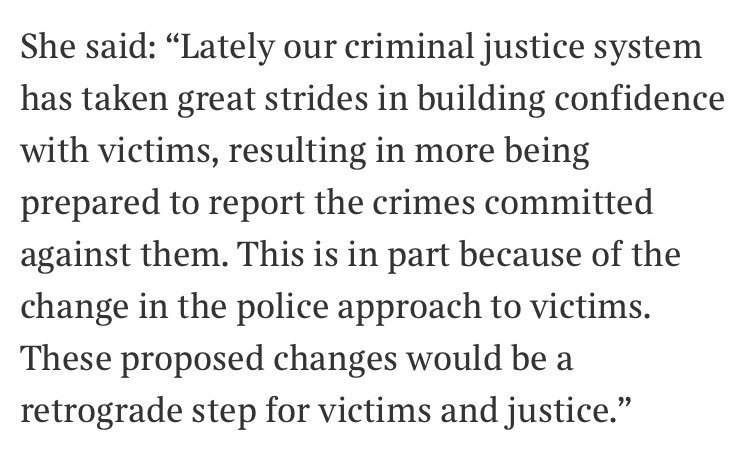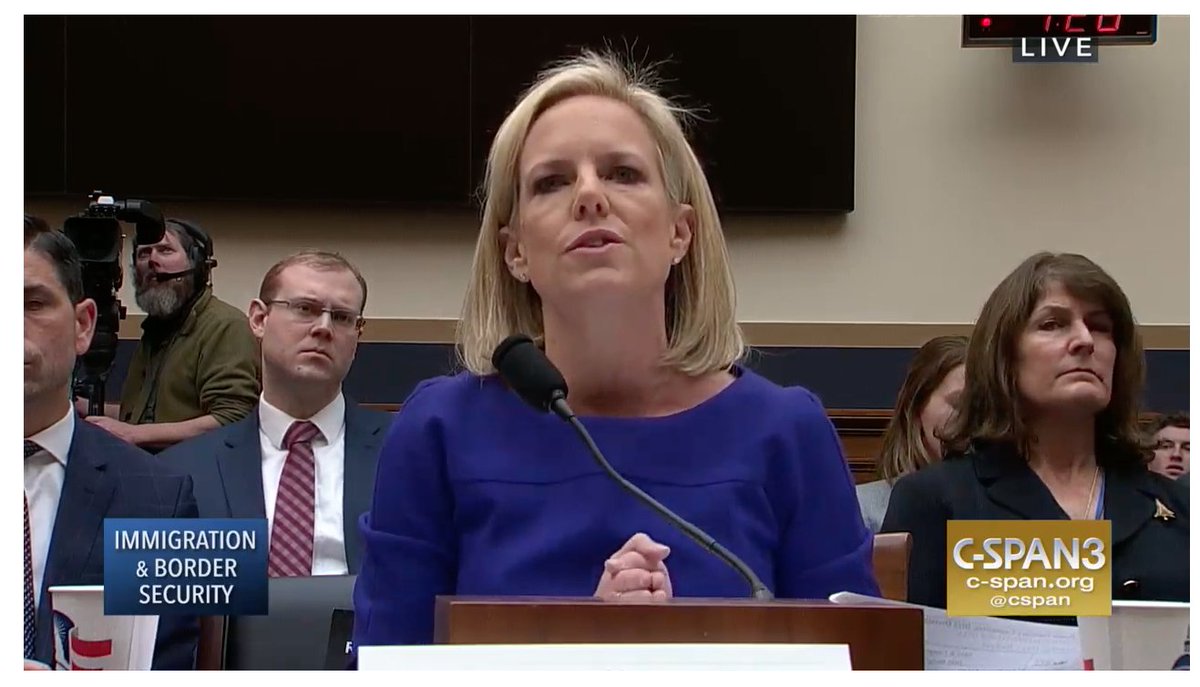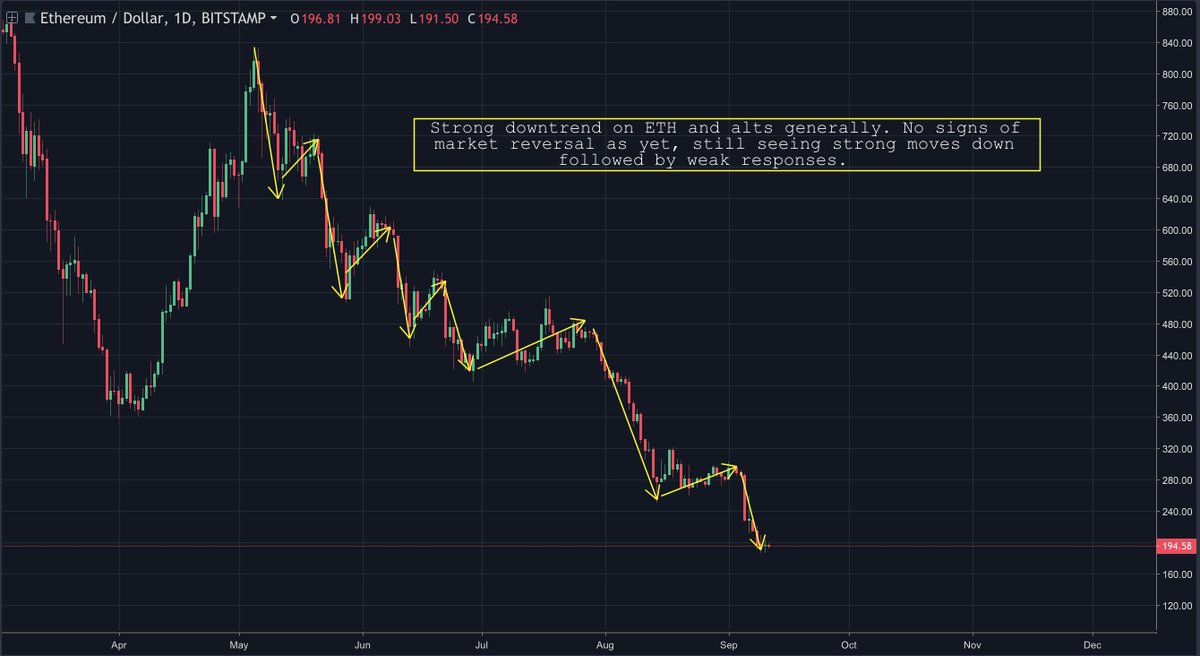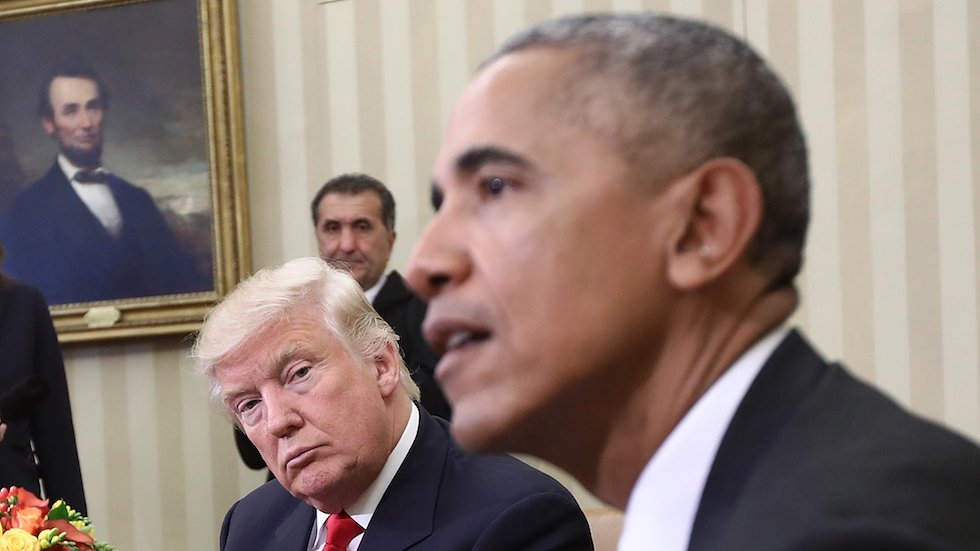There should never be a policy prohibiting officers from believing or disbelieving anything, least of all in allegations of sex crimes.
(A thread...)
To call complainants “victims” at this stage is to axiomatically call suspects “perpetrators” at the same time.
This looseness with language has consequences.
This is a lose-lose situation.
A complainant loses because opportunities to investigate and potentially refute such evidence have been overlooked and lost.
An investigator’s objective must always be the truth.
Such things cannot happen when policy-affirmed biases dispose investigators to miss it.
(I read this in @sapinker’s ‘Enlightenment Now’, & I’ll find the reference later.)
A policy governing belief, no less.
In all seriousness, what other institutions, other than the religious, govern belief and doubt?
Complainants (and consequently victims among them) should not be lied to.
Thus, the policy is actually tantamount to dictating that officers lie to complainants by telling them they will be believed, regardless of whether they will be.
How condescending and utterly shameful.
To think victims should rather be told they would be believed, whether it’s true or not, is very patronising indeed.
An officer who uncovers evidence undermining a complainant’s allegation should not worry about approaching their supervisor, lest their lack of institutional belief in the allegation’s veracity be revealed.
• Assume nothing
• Believe no one
• Check everything (twice)
The policy violates A and B directly, and C indirectly as a consequence of the others.
Again, a conversation on police policy is being influenced and (I submit) subverted by politics.
A principled stance is warranted here—one which defends the rights of everyone and uphold justice for all.
(End.)

